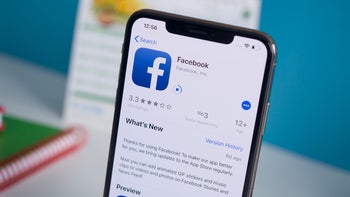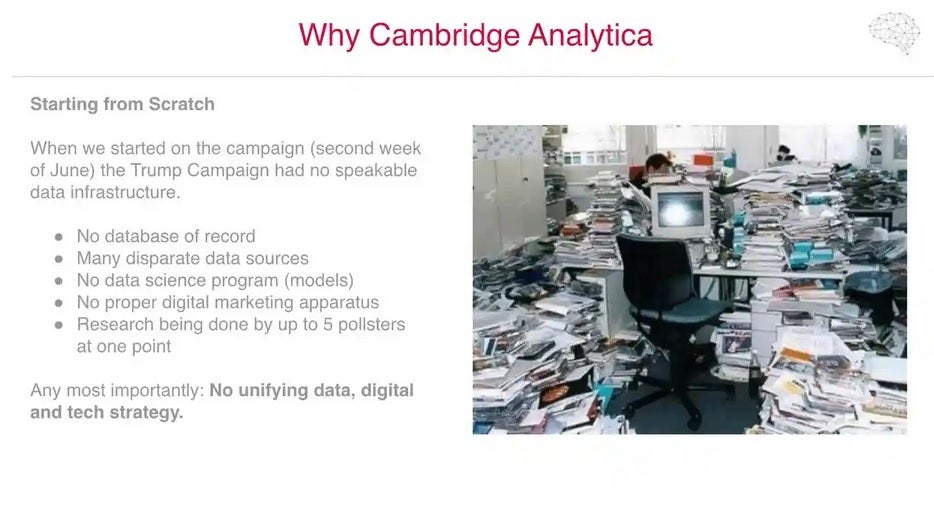Meta settles Class-Action suit related to Cambridge Analytica and the 2016 presidential election

You might recall that in 2018, it was discovered that 87 million Facebook users had their personal data used without permission. The data was supposed to be employede by Russian-American researcher Aleksandr Kogan and ended up in the hands of political consultancy Cambridge Analytica, a company that was co-founded by Trump advisor Steve Bannon. The 2016 Trump campaign reportedly used the data to find areas of the country that would respond to the heavy rotation of television commercials.
Today, The Guardian reports that Facebook parent company Meta settled a lawsuit filed by Facebook users that claimed the company (then known as Facebook) illegally shared their personal data with Cambridge Analytica. The seriousness of this action was revealed when the FTC fined Facebook a whopping $5 billion. A lawsuit filed last year claims that Facebook paid $4.9 billion more than necessary to the FTC to guarantee that its co-founder and CEO Mark Zuckerberg would not be named in the FTC complaint.
Terms of the settlement have not been disclosed and the suit is on hold for 60 days
The latest lawsuit settled by Meta is not criminal but is a Class-Action civil suit and the financial terms of the settlement were not released. Additionally, no other details were made known although it would appear that the plaintiffs are those Facebook users whose personal data ended up at Cambridge Analytica. The latter firm went bankrupt just two months after the story broke about how the company acquired the personal data of so many Facebook users.

After the election, Cambridge Analytica tried to get business from other campaigns by showing slides like this one
While the amount that Meta agreed to fork over is not known, legal experts said that Meta would have been on the hook for hundreds of millions of dollars had it lost the case in court. The filing filed with the court by both sides asks the judge presiding over the case in San Francisco federal court to put the suit on hold for 60 days as lawyers representing the plaintiffs and those representing Meta produce a written document discussing the terms of the settlement.
Cambridge Analytica patted itself on the back after the election as it sought to sign up more political campaigns
An anonymous former Cambridge Analytica employee turned over several slides to The Guardian not long after the story broke about howFacebook failed to protect the personal data of 87 million subscribers. The slides showed how the 2016 Trump campaign used the data from Cambridge Analytica to pull off what arguably was the biggest political upset in history.
Cambridge Analytica, seeking business from other political campaigns following Trump's 2016 shocker, created a slide show for potential customers showing how it came into a campaign in disarray and whipped it into shape.
The Clinton campaign also showed signs of overconfidence as it had arranged to run ads on Google's video hosting platform but decided to give up the slots. Cambridge Analytica was notified by Google that these slots had opened up and it took advantage of this by buying them from Google which it used to run two different ads for the 2016 Trump campaign. The ad that viewers saw was based on where in the country he or she lived.
The Class-Action suit has been going on for four years and as many as 87 million current and past Facebook users are in line to receive some money for having their personal info used without permission. How much might they each receive? That figure depends on the number of members in the class as some of the 87 million users might have decided to take legal action of their own. It also depends on the size of the settlement, and don't forget that the lawyers will take anywhere from a 25% to 33% cut.
With the suit on hold for 60 days, it won't be until Halloween at the end of October before we might have more information on how much Meta might be paying out to settle this suit. And for those who think that Meta and Facebook are being unfairly treated, consider that this all took place just five years after Facebook signed a consent decree with the FTC in 2011 promising never to use subscribers' personal data without permission.










Things that are NOT allowed: